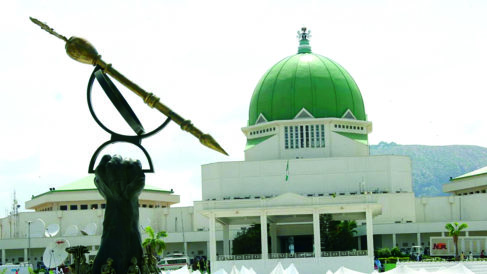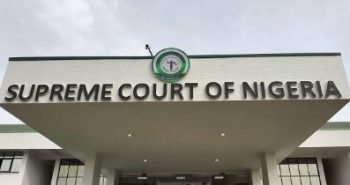Subscribe to the our newsletter to receive latest news straight to your inbox.
WAEC Financial Probe: House of Reps politicising Council, moves overboard
By Clifford Ejenavi The ongoing investigations into the revenue and expenditure of the West African Examinations Council (WAEC) in Nigeria by the Federal House of Representatives Committee on Basic Examination Bodies, has been revealed to be a political plot to disperse or malign the well structured image of the Council. With the current negative narratives…

By Clifford Ejenavi
The ongoing investigations into the revenue and expenditure of the West African Examinations Council (WAEC) in Nigeria by the Federal House of Representatives Committee on Basic Examination Bodies, has been revealed to be a political plot to disperse or malign the well structured image of the Council.
With the current negative narratives in some quarters of the media about the WAEC’s financial and administrative procedures, following the alleged unsatisfactory responses of the Council representatives with regards to specific budgetary items and funding, Nigerian Impact findings revealed that the House Committee seems to have gone overboard in its oversight functions on the Council’s administrative and financial procedures.
For instance, WAEC is an international examining body, established in 1952 with the mandate to determine the examinations required in the public interest, to conduct examinations and award certificates to deserving candidates in Nigeria and the West African countries. The Council has carried out this mandate satisfactorily, and has become a beacon of educational assessment and cooperation in the West African sub-region.
In pursuant of its constitutional powers, the Federal House of Representatives Committee summoned WAEC Nigeria to address several issues and raised allegations on the Council’s financial procedures. However, an investigation into the allegations raised by the House Committee have led to the findings about the status of WAEC, as well as its financial and administrative procedures.
Facts have emerged regarding the generation of N34billion revenue and N6billion deficit recorded in the 2023 Financial year. First and foremost, the provision of educational services in WAEC member countries, including Nigeria, is a social service and as such, WAEC is not allowed to charge economic fees for its examinations. WAEC member countries augment the examination fees by way of subvention.
In Nigeria, the Federal Government chooses to augment the examination fees with appropriation of funds for personnel emoluments, overhead expenses and specified capital projects in the federal budget. For the years under review (2018 to 2023), the Federal Government’s appropriation to the Council averaged 15 percent of its budget per annum, which covers personnel, overhead and capital. Therefore, WAEC is not fully funded by the Federal Government of Nigeria.
The registration fee for the West African Senior School Certificate Examination (WASSCE) is regulated to make education affordable and accessible to the Nigerian Child. The allocations that WAEC receives, serve as subsidy to augment its revenue in order to meet its obligations towards the conduct of its examinations.
The examination registration fees are used for the purchase of examination materials, logistics in the conduct of examinations, commissioning of item writers, organizing item writing workshops, moderating meetings, printing of codes, appointment of supervisors, payment for the services of all functionaries involved in the examination processes, from the pre examination arrangements to the post examination arrangements, relevant allowances payable to all ad-hoc and permanent staff engaged in the conduct of examinations, organizing of preliminary coordination and general coordination, appointment of examiners and checkers, as well as their remuneration.
The fund is also used for general office administration in all the states of the Federation and FCT. WAEC revenue budget for 2023 was Thirty-four billion naira (N34,000,000,000) while the expenditure estimate was Forty Billion naira (N40,000,000,000). The Federal Government of Nigeria was expected to provide the difference of Six Billion naira (N6,000,000,000) to fund the budget.
However, only the sum of Three Billion, Five Hundred Million Naira (N3,500,000,000) was appropriated. It is pertinent to state that the details of the final figures of the deficit in WAEC’s operation in 2023 will be determined when the final audited account is published. It should be noted that the Council, in its policy of prudent management of resources, also implements its budget based on the availability of funds.
As for the alleged N5billion loan for the procurement of customised calculators, it has been discovered that in 2022, the economic situation became a growing concern for the Council in Nigeria, as inflation rates kept rising and the working capital of the Council could not adequately cover the cost of conducting the examination for the year. The Council, in a bid to meet up with its obligations of procuring critical examination materials for the conduct of examinations, obtained a loan from First Bank of Nigeria Ltd, specifically for the procurement of specified items, which was to be repaid upon availability of funds. The loan application followed due process of approval by WAEC’s Governing Board and the loan was fully liquidated according to the terms of the arrangement with the bank.
WAEC, being a law-abiding organization, and in accordance with Section 80(4) of the Constitution of the Federal Republic of Nigeria, has continued to follow the prescribed mode and processes for receiving and administering its funds. It is imperative to state that, the National Assembly has prescribed, via the provisions of the WAEC Act, the funds to be maintained, viable expenditure heads, accounts to be maintained, the power to borrow, and other powers and duties of WAEC in Nigeria (Sections 11 and l7 of the WAEC Act).
On the issue of the alleged breach of Financial Regulations, Public Procurement Laws and Financial Regulations Act, Nigerian Impact discovered that Section 3(1) of the Procurement Act of the Federal Government limits the scope of application of the Act to the Procurement of goods works and services by the Federal Government and its agencies or any procurement by any other entity of government in Nigeria of which at least 35 percent of the amount for funding the procurement will be sourced from the Federal Budget.
However, in 2018, the amount appropriated in the government’s budget for the construction of the Jalingo Branch Office of WAC was N53,531,028.00, which was 10.0 percent of the contract sum N532,071,367.81. Therefore, the execution of the contract does not fall within the scope of the Public Procurement Act. Further findings revealed that the Council mobilised the contractor to the tune of 50 percent of the total value of the project, to avoid contract variation which could arise due to inflation and general increase in price level.
The call for the submission of WAEC bank statements from 2018 to present was unlawful request. This is because WAEC in line with its Convention enjoys legal personality as an international organisation within its member countries, including Nigeria; thus, the status of WAEC as an international organisation is a well-settled matter within the Executive, Legislative and Judicial arms of Government in Nigeria. WAEC Nigeria, is neither a Ministry, Department, Agency nor Parastatal of the Federal Government of Nigeria. WAEC is an international organization, created in 1952, by a Convention acceded to, by five West African Countries, being the Republics of The Gambia, Ghana, Liberia, Nigeria and Sierra Leone.
The Council enjoys legal personality as a corporate body with perpetual succession under the laws in force in Nigeria (WAEC Act, Cap W4, LFN, 2000). Therefore, details of statements of accounts, payment voucher in respect of funds given to the Council for running overhead and capital, for the year 2018-2023, were given to the Committee.
However, while the House of Representatives Committee has the constitutional power to investigate matters, which it has the powers to make laws on and to procure evidence relating to such matters, it is also important to note some facts about the administrative and governance structure of WAEC. In each Member Country, including Nigeria, a National Committee is established by Council to serve as its Sub-committee and the National Committee is the highest Committee of Council in the country (Article 7 of WAEC convention).
The National Committees are to advise, make reports and/or recommendations to Council on any matter relevant to the functions of WAEC and other provisions of WAEC Convention (Article B of WAEC Convention). Each National Committee is chaired by the chief Government Nominee of each Member Country. The highest Committee of Council in Nigeria, the Nigeria National Committee (NNC), is composed of 5 appointees of the Federal Governrnent of Nigeria, one of which serves as the Chairman of the NNC.
The Chairman of the NNC, is statutorily, the Director, Senior Secondary Education, Federal Ministry of Education, Nigeria. Other interests represented in the membership of the NNC include: Directors of State Ministries of Education, representatives of Universities, Polytechnics, Colleges of Technology, Colleges of Education, All Nigeria Confederation Of Principals of Secondary Schools (ANCOPSS), National Teachers Institute (NTI), Nigeria Union of Teachers (NUT), National Board for Technical Education (NBTE), Administrative Staff College of Nigeria (ASCON), Nigerian Educational Researchand Development Council (NERDC), The Universal Basic Education Commission (UBEC), The Nigerian Association of Chamber of Commerce, Industry, Mines and Agriculture (NACCIMA) and Nigeria Employers Consultative Association (NECA).
Therefore, the WAEC structure shows that its Governing Board is duly and properly constituted. To this end, over the years, WAEC has remained consistent in its delivery of services to the Nigerian Child and the public, with the highest level of professionalism, responsibility, integrity, transparency and accountability. It has equally continued to partner with the Federal Government in the deliverables on the education agenda, with mutual understanding.
This symbiotic relationship has been of immense benefit to the Nigerian Government and its citizens, leading to improvement and advancement of quality education. Despite being bound to operate within the legal framework of its host countries, WAEC also adheres to its Act and Convention.
Recommended Articles
-
FG debunks cancellation of 2025 WASSCE, NECO
2 months ago316 views -
Nationwide Virtual Test: LASU students emerged winners, get cash reward
11 months ago452 views -
NEC applauds NELFUND for advancing education in Nigeria
11 months ago279 views -
Local Government Autonomy: A path to progress or recipe for more corruption?
1 year ago348 views -
NYSC Mobilisation: Only full-time HND graduates are eligible, says Minister
6 months ago392 views









